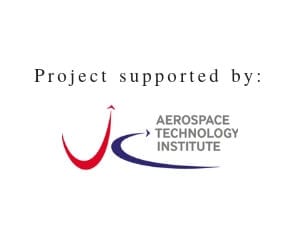Our Partners
The project partners comprise of three leading UK aerospace equipment manufacturers, BAE Systems, GE Aviation and Rolls Royce, and two of the leading aerospace human factors groups, Coventry University and the University of Southampton.
Manufacturers
BAE Systems
BAE Systems is one of the largest aerospace and defence companies in the world and has been at the forefront of the design, development and manufacture of high integrity avionics systems for more than 40 years. BAE Systems brings extensive experience in eyes out displays, active controls and high integrity systems. The OFD programme will allow BAE Systems to adapt and tailor a range of avionic cockpit technologies previously developed for military fast-jet platforms and exploit them into civil aerospace thereby expanding market opportunities for this technology. BAE Systems is focusing on three product areas: head-up displays, active inceptors and applications.
Find out more about the work BAE Systems does on displays here.
Learn more about BAE Systems’ controls business here.
GE Aviation
The project is led from the Cheltenham site, where we have combined R&D, engineering and manufacturing capability. GE Aviation was the lead partner on the Future Flight Deck project and has a track record of technology development on National and European projects (notably we led the €50M, 50 partner TATEM project). GE Aviation brings extensive experience in: flight deck design, open systems implementation, innovation, industry standards and certification, market access and R&D programme leadership. By supporting UK R&D we have the opportunity to reduce development cost by ~£100M.
Rolls-Royce
Rolls-Royce Plc is one of the world’s largest civil aero-engine providers and world’s second largest defence aero-engine manufacturer. Rolls-Royce Plc provides military engines covering the transport, combat, patrol, trainers, helicopter and unmanned vehicle sectors to over 160 military customers in more than 100 countries.
Rolls-Royce plans to create a flight deck engine status application which provides improved but also simply presented information to the pilot to help determine the best course of action for that individual situation.
Academic Human Factors Groups
Coventry University
Coventry University was named University of the Year for Student Experience 2019 (The Times and Sunday Times Good University Guide 2019), and is ranked a top 13 UK University (Guardian University Guide 2019). The Human Systems Integration Group team brings highly experienced Human Factors personnel to the project including Chartered Human Factors professionals, airline pilots and test pilots and members of staff who have received Royal Aeronautical Society Hodgson Prize and Ergonomics Society President’s medal. Coventry was actively involved in the Future Flight Deck program; the HAMPER project, funded through the GAMMA programme and the current REACTOR project which is part of the EU Clean Sky 2 joint undertaking. They are also actively involved in the design and certification of advanced flight decks with COMAC.
University of Southampton
The University of Southampton is a world-leading, research-intensive university whose core mission is to ‘change the world for the better’. The Human Factors Engineering team at the University of Southampton intend to explore novel pathways through which Open Flight Deck can impact other (non-competitive) transportation sectors that are engaged with advanced cockpits analogous to flight decks such as automotive and maritime. The team are experts in Human Factors methods and have produced the leading text book on the subject as well as two other books on ‘Distributed Cognition and Reality: How pilots and crews make decisions’ and ‘Human Factors Modelling in Aviation Accident Analysis and Prevention’.
Follow the Human Factors team on Twitter.








